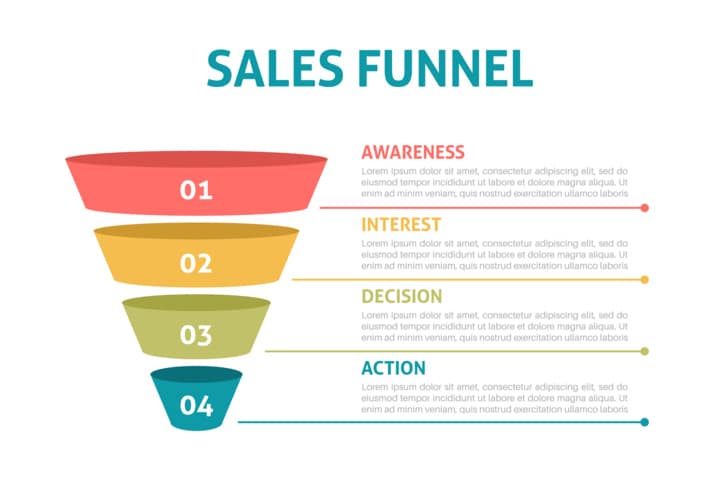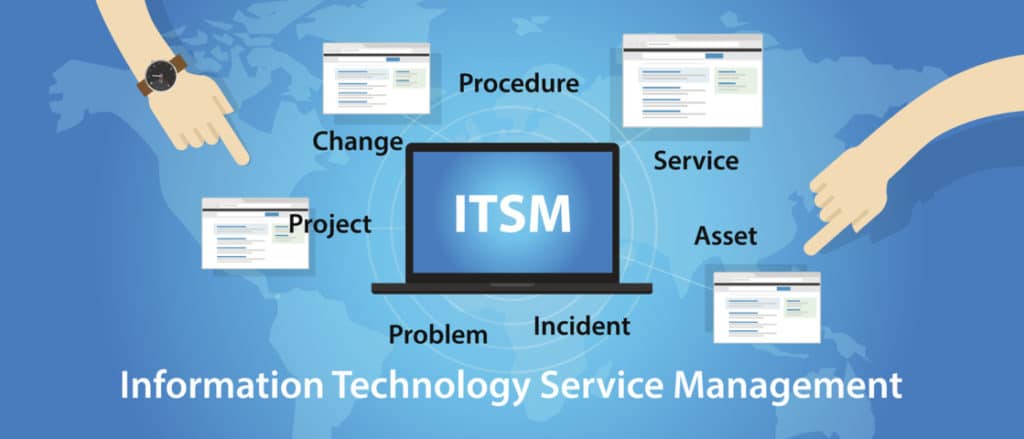Enterprise sales, also known as complex or strategic sales, refers to a business model where products or services are sold to large corporations. These sales typically involve multi-layered deals with high stakes, high costs, and a lengthy decision-making process. The enterprise sales model demands a strategic approach, which includes building long-term relationships with clients, understanding their unique needs, and providing tailored solutions.
If you’re interested in learning more about enterprise selling and how to excel in this field, read on. In this blog, we will cover the fundamentals of enterprise sales and provide tips on developing an effective enterprise sales strategy.

What Is Enterprise Sales?
Enterprise sales refers to the process of selling products or services to large organizations or enterprises. It typically involves a complex and lengthy sales cycle, as decision-making within these organizations often involves multiple stakeholders and requires extensive negotiation. Enterprise sales strategy focuses on building relationships with key decision-makers, understanding their unique business needs, and demonstrating how their offerings can solve specific challenges.
Successful enterprise sales professionals possess excellent communication and relationship-building skills, as well as a deep understanding of their industry and the ability to navigate complex sales processes. Ultimately, enterprise sales is about closing high-value deals that drive growth and revenue for both parties involved.
Benefits Of An Enterprise Sales
So, why should businesses invest in an enterprise sales model? Here are some of the key benefits:
Increases Profit
An enterprise sales model enables businesses to target high-value clients, leading to larger and more profitable deals. Since these transactions involve complex solutions tailored to specific business needs, they often come with higher price tags. This can significantly increase the profit margins for businesses. Instead of needing to rely on a high volume of smaller sales, companies can generate significant revenue through fewer but more substantial deals.
Scales Your Company
Enterprise sales is all about targeting large organizations and securing long-term partnerships. By successfully closing deals with these key clients, businesses can significantly scale their operations and expand into new markets. Additionally, through building strong relationships with enterprise clients, companies can access valuable insights and feedback that can inform product development and drive continuous improvement.
Builds Credibility
When a business secures a sale with a large enterprise, it not only generates revenue but also builds credibility and establishes itself as a reliable and trustworthy provider. This can help attract other potential clients and boost the company’s reputation in the market.
Sustainable For The Long Term
Enterprise sales typically involve longer-term contracts and partnerships, ensuring a steady stream of revenue for businesses. This stability can be crucial during economic downturns or periods of instability in the market.

4 Stages Of Enterprise Sales
Now that we’ve covered the enterprise sales meaning, let’s look at the different stages involved in an enterprise sales process:
Prospecting
The first stage of enterprise sales involves identifying potential clients and determining their needs. This requires extensive research to understand the business, its industry, and the key decision-makers within the organization.
Qualification
Once a list of prospects has been identified, businesses must then qualify them based on certain criteria such as their budget, decision-making processes, and fit with the company’s offerings. This stage helps businesses focus their efforts on high-value prospects that are most likely to result in a successful sale.
Presentation and Negotiation
Once qualified, the next step is to present the business’s offerings to the potential client. This often involves multiple meetings and presentations, as well as extensive negotiation to address any concerns or objections. This stage also includes developing a tailored solution that meets the unique needs of the client.
Close and Onboarding
The final stage is closing the deal and onboarding the new client. This involves finalizing all terms, signing contracts, and ensuring a smooth transition for the client to start utilizing the business’s products or services.
How To Create Your Enterprise Sales Strategy
To develop a successful enterprise sales team and strategy, businesses should consider the following as fundamentals of enterprise sales.
Understand your goals
Setting clear and attainable goals is a crucial first step in shaping your enterprise sales strategy. Goals provide direction, aid in decision-making, and serve as a measure of success. Whether the objective is to secure a certain number of enterprise clients, achieve a targeted revenue increase, or penetrate a new market sector, establishing these goals upfront helps align your team’s efforts and keep everyone motivated.
Remember, goals should be SMART: Specific, Measurable, Achievable, Relevant, and Time-bound. Let’s break that down a bit further.
- Specific: This means that the goal should be clear and well-defined, leaving no room for ambiguity.
- Measurable: Businesses must be able to track progress towards their goals and measure success.
- Achievable: Goals should challenge the team but still be within reach. Setting unrealistic or unattainable goals can lead to demotivation and disappointment.
- Relevant: Goals should align with the overall objectives and values of the company.
- Time-bound: Setting a specific timeline for achieving goals helps create a sense of urgency and provides a clear timeframe for success.
For example, a goal for an enterprise sales team might be to secure partnerships with 10 new clients in the healthcare industry within the next 12 months, resulting in a revenue increase of at least 20%.
Find the pain points of your customers
Understanding and addressing the pain points of your enterprise-level customers is crucial for building successful relationships and driving sales. Pain points are the specific challenges or problems that these customers face in their business operations.
By identifying and addressing these pain points, you can position your products or services as solutions that provide tangible value.
To find the pain points of your enterprise-level customers, it is essential to engage in active listening and open communication. This can be done through:
- In-depth conversations
- Surveys
- Customer feedback and outreach
- Market research
By listening attentively to your customers and gathering insights, you can gain a deeper understanding of their pain points and the specific areas where they need support.
For example, a healthcare company may struggle with outdated technology systems that slow down their operations and affect patient care. By understanding this pain point, an enterprise software provider can tailor their solution to address the specific needs of the healthcare industry and position themselves as a valuable partner.
Find prospects
Once you understand your goals and your customer’s pain points, the next step is to find potential clients that match your target criteria. This can involve researching industry events, attending conferences and trade shows, leveraging referrals, and utilizing social media and other online platforms.
When looking for prospects, it’s important to prioritize quality over quantity. Instead of casting a wide net and reaching out to every potential enterprise client, focus on a select few that align with your target criteria and have a higher chance of conversion.
Create a sales process
So, how do you do enterprise sales? One of the most important steps is to create a sales process. Here’s a condensed guide on how to do that:
- Research: Understand your target market’s pain points and challenges. Identify key decision-makers and influencers within the organization.
- Prospecting: Develop a targeted list of potential enterprise customers based on your research. Use various channels such as referrals, networking events, and social media to initiate contact.
- Qualification: Assess leads based on their fit with your solution, budget, and timeline. Determine if they have the authority and resources to make purchasing decisions.
- Needs Analysis: Engage in detailed conversations with prospects to understand their specific pain points and requirements. Tailor your solution to address their unique needs.
- Proposal and Presentation: Create a compelling proposal that clearly articulates the value of your solution. Present it to key stakeholders, highlighting how it aligns with their business objectives.
- Negotiation: Collaborate with prospects to reach mutually beneficial terms. Address concerns, provide additional information, and demonstrate flexibility when necessary.
- Closing: Obtain commitment from the prospect to move forward with the purchase. Clearly communicate next steps and timelines.
- Onboarding: Ensure a smooth transition from sales to implementation. Provide support and guidance during the onboarding process.
- Evaluation and Iteration: Continuously evaluate and refine your sales process based on feedback and results. Adapt to changes in the market and customer needs.
Know the important players
Enterprise sales often involve multiple stakeholders and decision-makers within an organization. It’s essential to identify and understand these players’ roles and how they influence the purchasing decision.
Some key players in enterprise sales include:
- The Economic Buyer: This person holds the budget and has the final say on whether or not to purchase your solution.
- The Technical Buyer: This individual is responsible for evaluating the technical aspects of your solution and ensuring it aligns with their company’s infrastructure and requirements.
- The User Buyer: This person will be using your product or service, so it’s crucial to understand their specific needs and how your solution can address them.
By identifying and building strong relationships with these key players, you increase your chances of success in enterprise sales. Each player may have different priorities and concerns, so it’s important to tailor your approach accordingly.
Expect Long Sales Cycles
Unlike smaller businesses, enterprise sales often have longer sales cycles due to the complex decision-making processes involved. It’s crucial to remain patient and persistent during these cycles, constantly engaging with stakeholders and providing them with valuable information and support.
For example, a sales cycle for an enterprise software solution may involve multiple meetings, presentations, and evaluations over several months before finalizing the deal. By understanding this process and managing expectations, you can effectively navigate long sales cycles and secure successful partnerships with your enterprise-level customers.
Follow up more than usual
Enterprise sales also require a higher level of follow-up and nurturing than traditional B2B or B2C sales. This is because enterprise-level customers are often juggling multiple projects and priorities, making it easier for your proposal to slip through the cracks.
To ensure your proposal stays top-of-mind, follow up regularly with prospects and provide relevant updates, case studies, and testimonials to keep them engaged and interested in your solution.
Ask for feedback
Another important aspect of enterprise sales is seeking feedback from prospects and customers. This not only shows that you value their opinion, but it also provides valuable insights on how to improve your sales process and solution.
Ask for feedback after meetings, presentations, and implementations. Take note of both positive and negative feedback, and use it to iterate and refine your approach.
Implement a CRM
Customer Relationship Management (CRM) is an essential tool in enterprise sales. It acts as a central repository for all customer-related information, helping sales teams track leads, manage relationships, and automate sales activities. By using a CRM system, an enterprise sales team can streamline their sales processes, improve customer interactions, and make data-based decisions.
It enables prioritization of high-value clients, personalized communication, and effective follow-ups, which are critical in closing enterprise sales. Moreover, CRM systems provide a platform for evaluating sales performance and refining strategies, leading to improved sales outcomes.

How To Measure Your Enterprise Sales Strategy
Once you have a robust sales process in place, it’s essential to measure its effectiveness. Here are some key metrics to track when evaluating your enterprise sales strategy:
- Conversion Rate: This measures the number of leads that convert into paying customers. A low conversion rate could indicate issues with lead qualification or targeting.
- Sales Cycle Length: Track the average time it takes for a lead to become a customer. This metric can help identify bottlenecks or inefficiencies in your sales process.
- Deal Size: Measure the average deal size for enterprise-level customers. This metric can help you understand the potential revenue and profitability of your sales efforts.
- Customer Acquisition Cost (CAC): CAC measures how much it costs to acquire a new enterprise customer. This includes all sales and marketing expenses, divided by the number of new customers acquired. A high CAC may indicate an inefficient sales process or targeting the wrong audience.
- Customer Lifetime Value (CLV): CLV measures the total value a customer brings to your business over their lifetime. This metric can help you evaluate the long-term success and profitability of your enterprise sales efforts.
When tracking these metrics, it’s important to compare them against industry benchmarks and set realistic goals for improvement. Regularly analyzing and refining your sales strategy based on these metrics can help you achieve success in enterprise sales.
Wrapping It Up
Overall, mastering the fundamentals of enterprise sales involves understanding the unique needs and processes of large organizations, building strong relationships with key stakeholders, and continuously evaluating and refining your approach. By following these tips and strategies, you can effectively navigate the complex world of enterprise sales and secure successful partnerships with your customers. So, continue to hone your skills and adapt to changing market trends to become a top-performing enterprise sales professional!
Are you looking for top talent to join your enterprise sales team? Sales Recruiters Dallas can help you find and recruit top sales talents with the right skills and experiences that match your needs and requirements. Simply contact us to share your requirements with our team or post the details of your job vacancy on our platform and wait for applications from talented sales representatives in Dallas.

